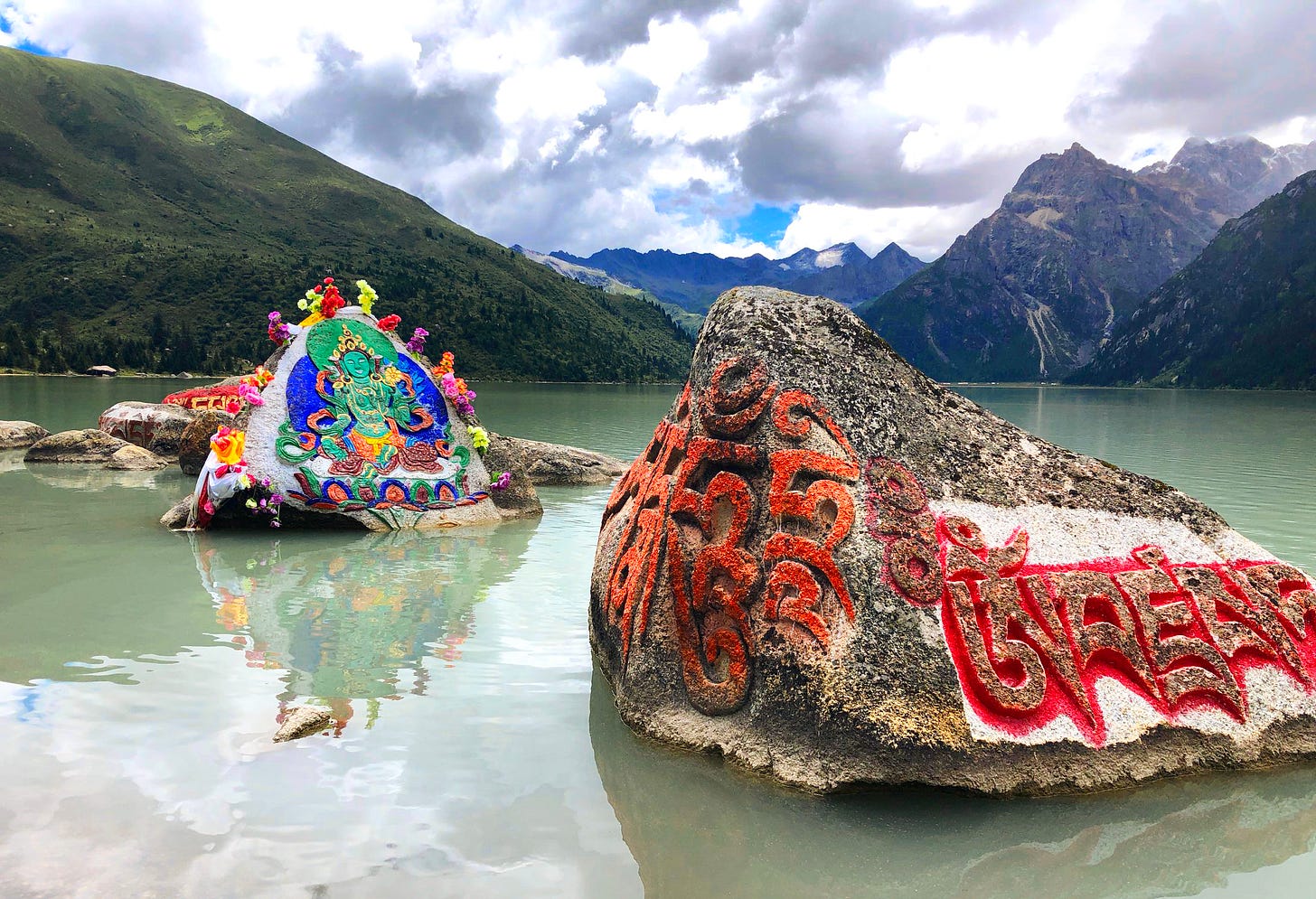Reflect on the fact that experiencing exists. Just this fact. The fact that we can experience anything is at least as interesting as what is experienced.
We generally obsess about our experiences. But for now, just contemplate the state of experiencing. According to Trika Shaivism and other traditions, experiencing doesn’t belong to individuals.
Trika says that the manifest world is God’s theater of experiencing. All beings and worlds are like a giant theater where this alive-aware reality gets to embody and experience an infinite variety of forms and circumstances.
Abhinavagupta often mentioned that our senses are deities playing in the field of duality. In other words, our senses are God’s senses, or we are God’s sense organs. Manifest life is God’s sensory amusement park.
A person with a high degree of realization can enjoy and perceive the immanent wisdom of the infinite varieties of experiences that comprise embodied life. Just like God.
Wonderstruck
The Siva Sutras describe the realized person as wonderstruck, or in a state of joy-filled amazement. The Supreme Self delights in exploring its own nature through the myriad sensory experiences of the infinite beings that are its own creation and its own body.
Even ordinary amazement leads us outside of small self-concept. The expression of amazement says it all: eyes wide open, mouth ajar, no self-referencing thought.
Amazement short-circuits attachment and habit. It literally blows your ordinary, karmic mind so that primordial wide-awakeness can resurface. Those who have deeply relaxed, shedding their karmic fixations, abide continuously in this natural state of wide-awake wonder.
Experiences R not Us
We suffer from attachments to experiences. We anxiously deploy our collection of experiences as we attempt to construct a coherent self and our personal brand or self-presentation.
Attachment to experiences is also a hindrance to self-realization. Holding onto experiences actually blocks us from becoming immersed in the endlessly flowing river of experiencing. And yet our attachment to having experiences is still an echo of Shiva’s enjoyment of the creation.
This is why beginner practitioners are often given the most tangibly enjoyable practices and are likely to be found lavishly adorning their altars. Teachers use our attachment to pleasure and beauty in order to get students more attached to sadhana. Later, these more gross pleasures are not so necessary.
The experience reflex
After we clear out our gross attachment to experiences, more subtle layers of attachment reveal themselves. These layers consist of subtle “experience reflexes.”
The experience reflex keeps attempting to grab onto the flow of experiencing, stabilize it, and possess it through habitual narrations. Even when there is no story, or very little story left, it’s hard to overcome the momentum of small I’s habit of grasping.
This reflex is really annoying, until it becomes funny.
Enter maha time
At some point, our compulsive grasping reveals itself as an expression of our fear of change and death.
We mark and chunk linear time to avoid feeling groundlessness. If we stop grabbing, categorizing, and embalming experiences in habitual narratives, we open out into the state of experiencing, and we begin to lose our grip on linear time.
When we are totally immersed in the living river of experiencing, linear time gives way to maha time a kind of timelessness or all-at-onceness that is inseparable from the living awareness that permeates everything. Space and time merge.
The world of “my experiences” versus the state of experiencing is like the difference between walking around in fifty pound gravity boots and jumping out of a plane. This is one of the reasons why Trika sadhana sometimes features frightening activities.
When we are taken over by the mixture of terror and exhilaration, we encounter something like the amazing pure presence of experiencing without past, future or the ordinary present. And that, my friends, is a Tantrik delight.
with infinite love,
Shambhavi
Want more? Please join me and the Jaya Kula community for satsang & kirtan every Sunday at 3:00pm Pacific. Come in person to 1215 SE 8th Ave, Portland, OR, or join Jaya Kula’s newsletter to get the Zoom link for satsang. You can also listen to my podcast—Satsang with Shambhavi—wherever podcasts are found.
Not quite ready to fire up a paid subscription, but want to show your appreciation?




